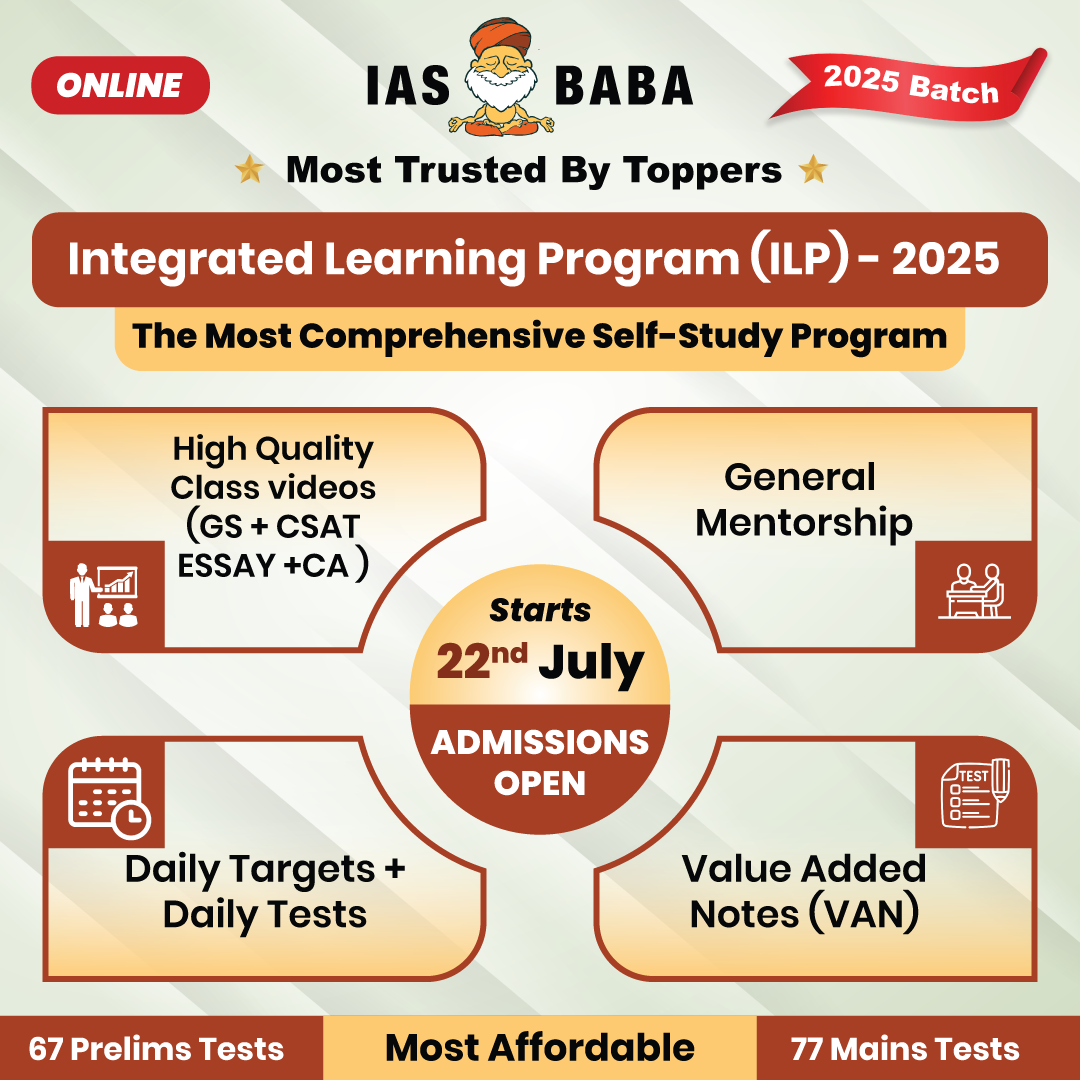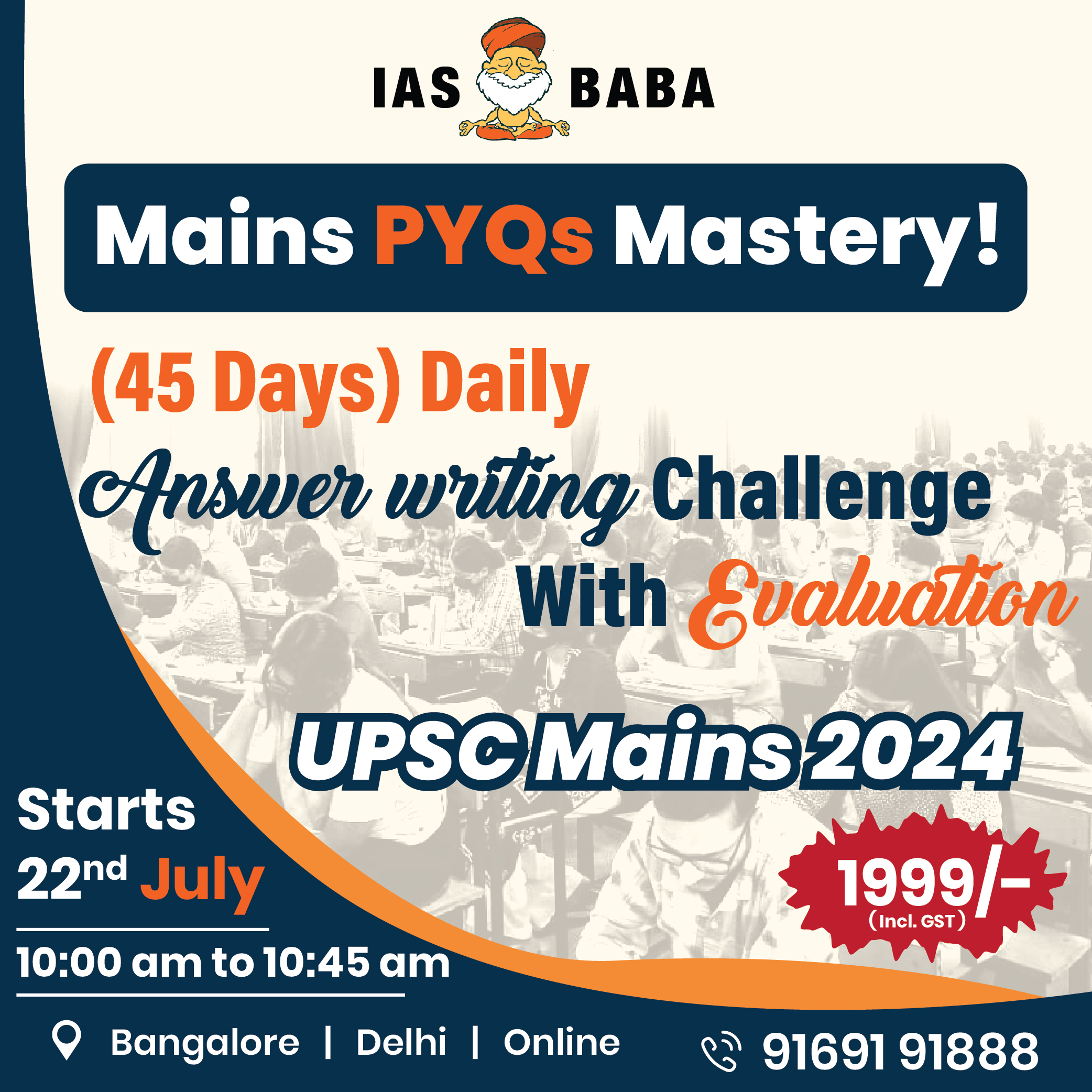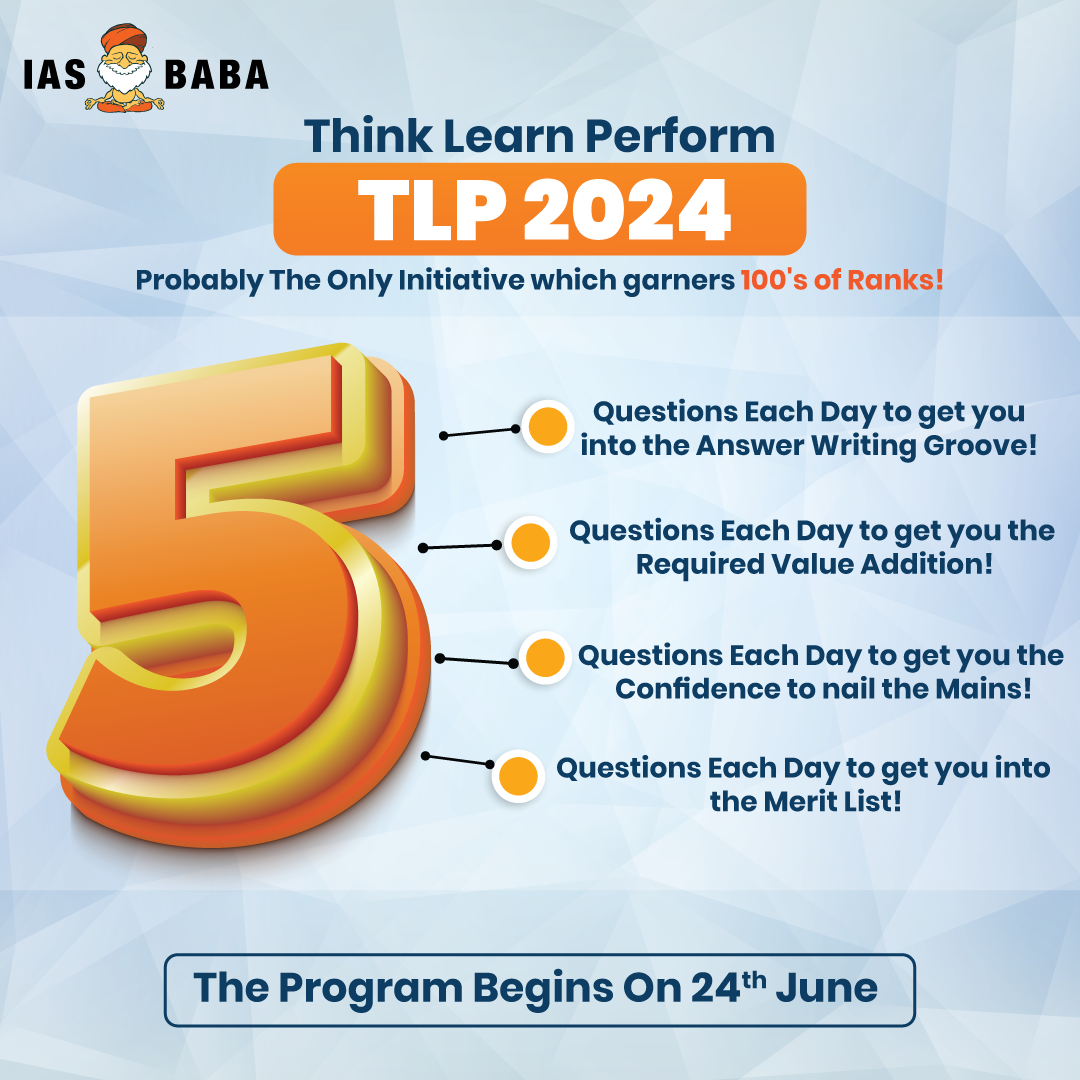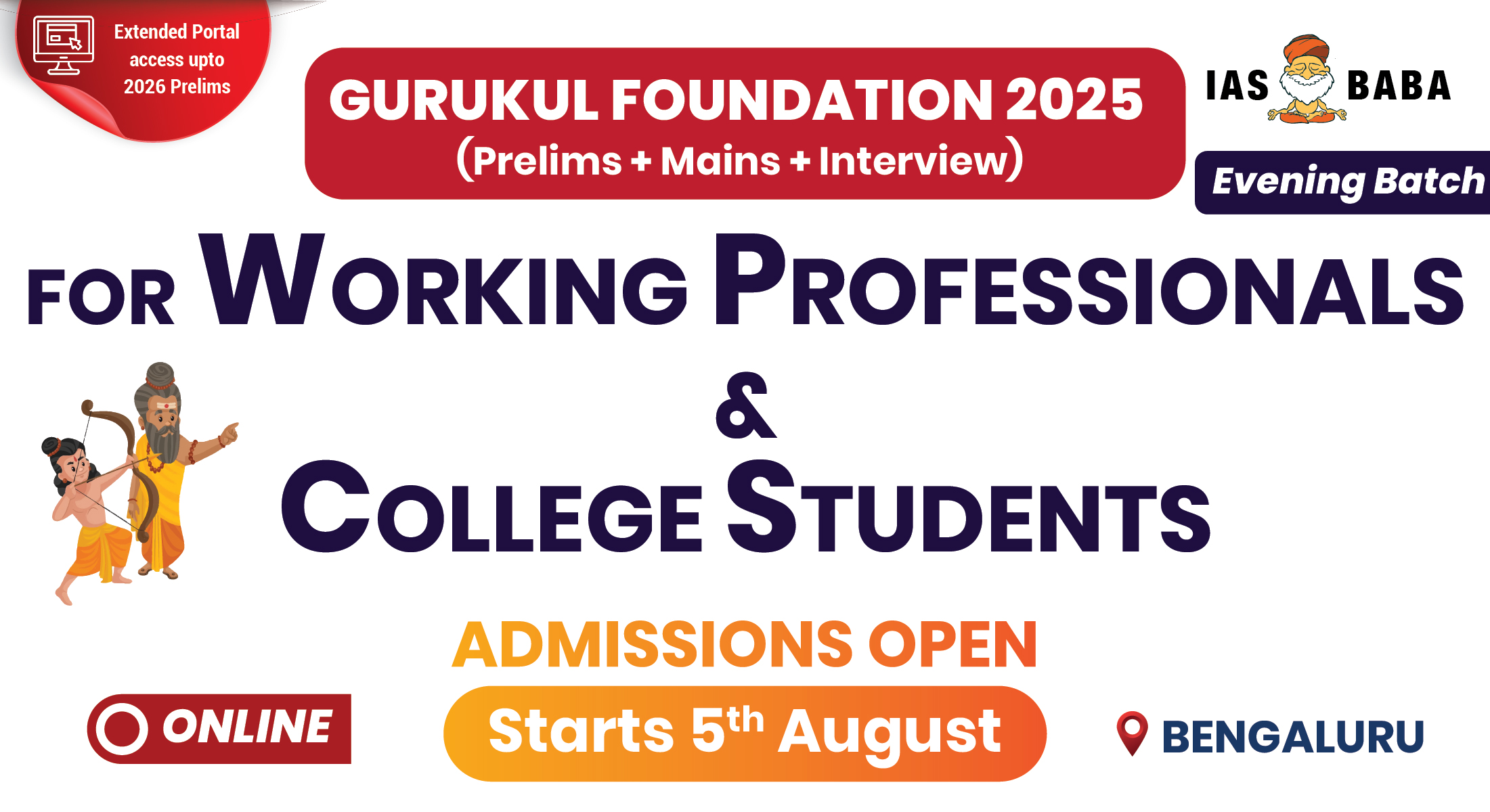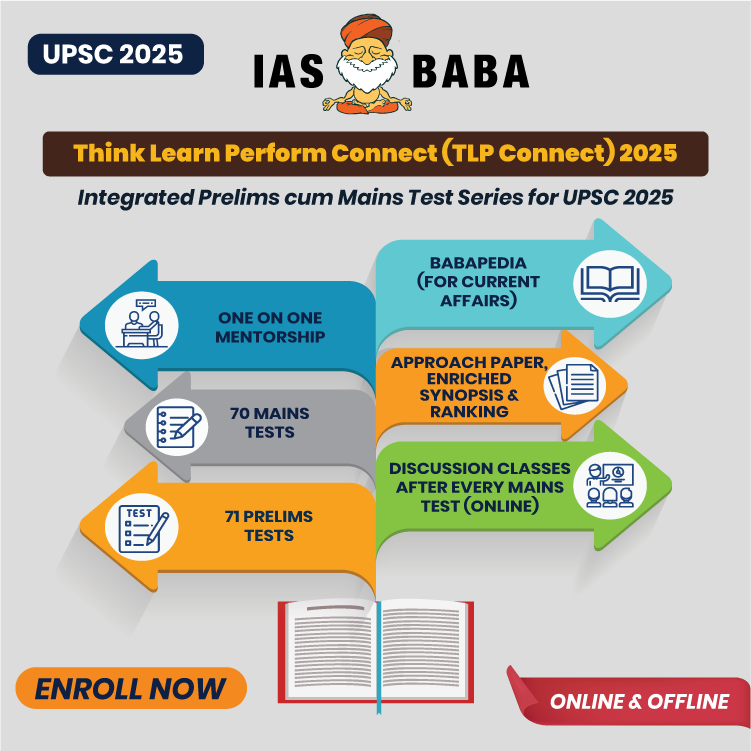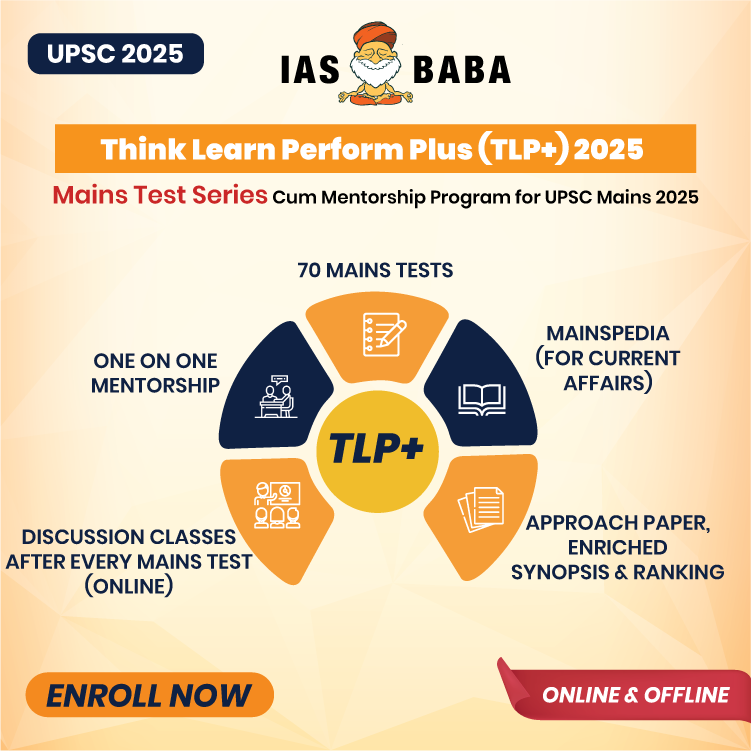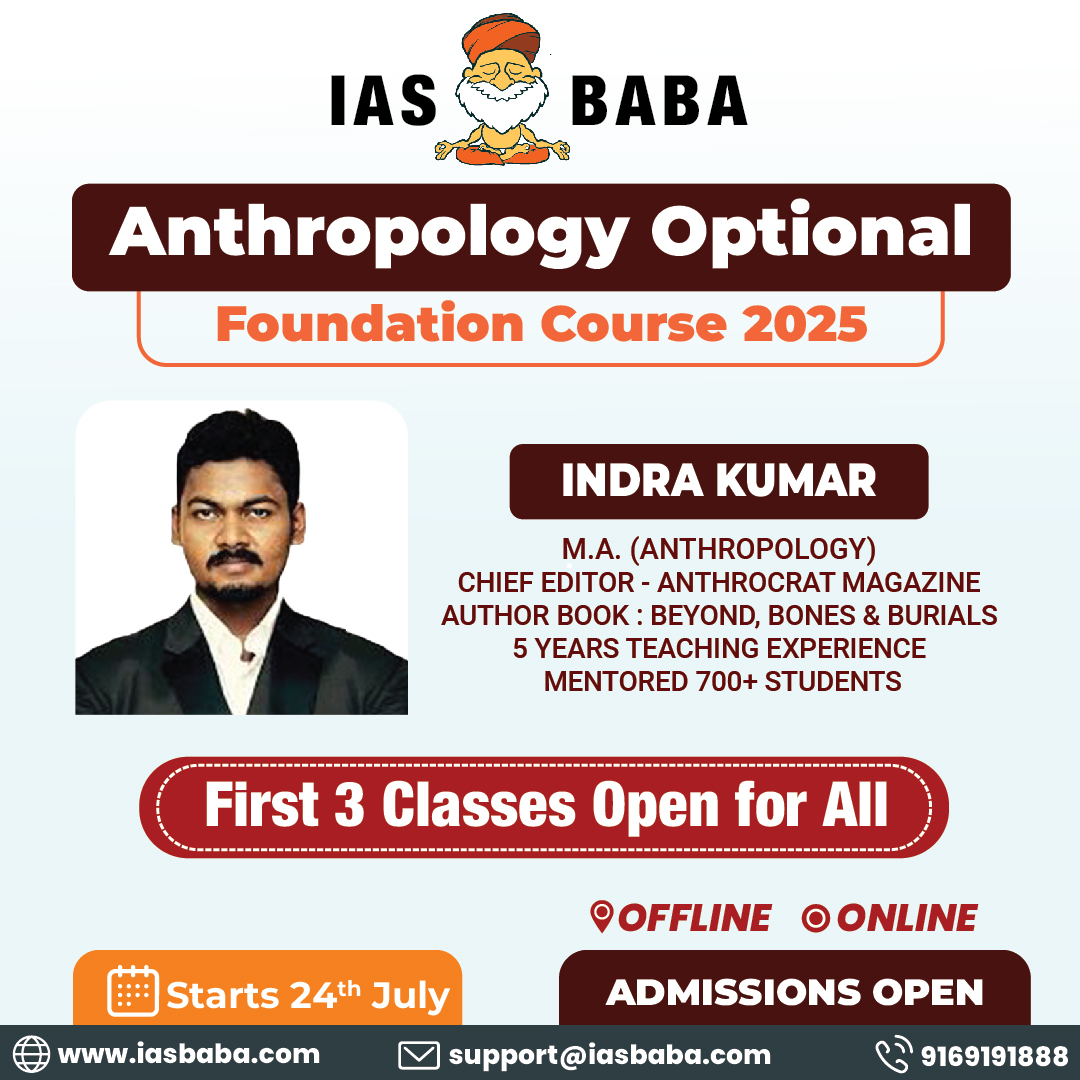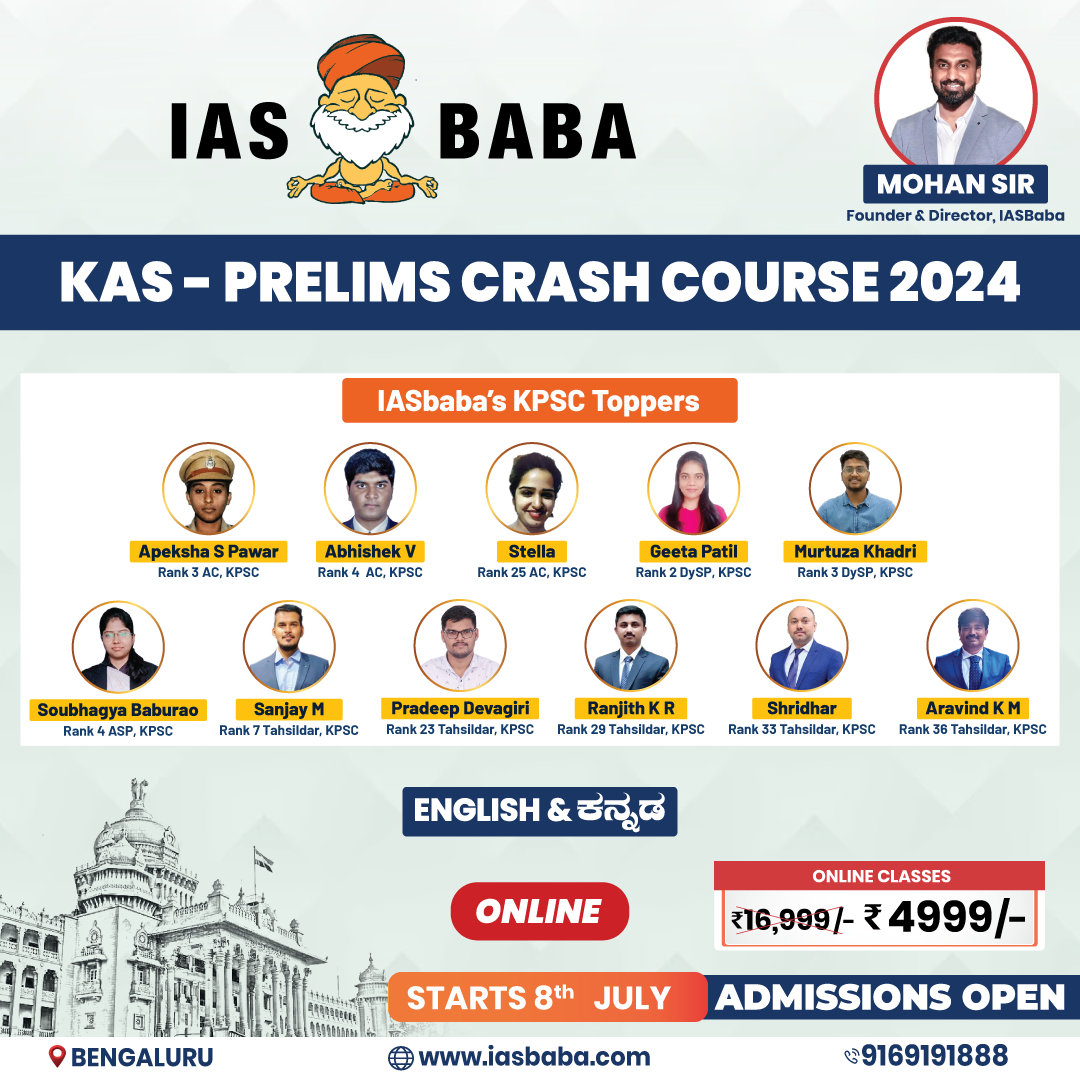IASbaba's Daily Current Affairs Analysis
Archives
(PRELIMS + MAINS FOCUS)
Indigenously developed DRDO systems handed over to Army, Navy and Air Force
Part of: GS Prelims and GS-III – Defence and Security
In news
- The Union Defence minister recently handed over three indigenously developed Defence Research and Development Organisation (DRDO) systems to Army, Navy and Air Force.
Key takeaways
- The Minister handed over the Indian Maritime Situational Awareness System (IMSAS) to the Chief of Naval Staff , ASTRA Mk-I Missile to Air Chief Marshal and Border Surveillance System (BOSS) to the Chief of Army Staff.
- BOSS is An all-weather electronic surveillance system.
- The system facilitates monitoring and surveillance by automatically detecting the intrusions in harsh high-altitude sub-zero temperature areas with remote operation capability.
- The IMSAS is high performance intelligent software system that provides Global Maritime Situational Picture, Marine planning tools and Analytical capabilities to Indian Navy.
- The ASTRA Mk-I is the indigenously developed first Beyond Visual Range (BVR) Missile, which can be launched from Sukhoi-30, Light Combat Aircraft (LCA), Mig-29 and Mig-29K.
Indian Railways issues draft National Rail Plan
Part of: GS Prelims and GS-III – Infrastructure
In news
- Recently, Indian Railways issued draft National Rail Plan.
Key takeaways
- The objective of the Plan is to create capacity ahead of demand by 2030, which in turn would cater to growth in demand right up to 2050 and also increase the modal share of Railways from 27% currently to 45% in freight by 2030.
- It aims to Reduce transit time of freight substantially by increasing average speed of freight trains from present 22Kmph to 50Kmph.
- Three Dedicated Freight Corridors, namely East Coast, East-West & North-South identified along with timelines.
- Assess Locomotive requirement to meet twin objectives of 100% electrification (Green Energy) by December 2023 and also the increasing traffic right up to 2030 and beyond up to 2050.
- Several new High Speed Rail Corridors have also been identified.
- Survey on Delhi-Varanasi High Speed Rail already under way.
Do you know?
- As part of the National Rail Plan, Vision 2024 has been launched for accelerated implementation of certain critical projects by 2024 such as:
- 100% electrification,
- Upgradation of speed to 160 kmph on Delhi-Howrah and Delhi-Mumbai routes,
- Upgradation of speed to 130kmph on all other Golden Quadrilateral-Golden Diagonal (GQ/GD) routes
- Elimination of all Level Crossings on all GQ/GD route.
Government publishes a draft notification on E20 Fuel
Part of: GS Prelims and GS-III – Environment
In news
- The Ministry of Road Transport and Highways has published a draft notification seeking comments from the public for adoption of E20 fuel as an automotive fuel and for the adoption of mass emission standards for this fuel.
- The notification facilitates the development of E20 compliant vehicles.
Important value additions
- E20 fuel is blend of 20% of ethanol with gasoline.
- It will also help in reducing emissions of carbon dioxide, hydrocarbons, etc.
- It will help reduce the oil import bill, thereby saving foreign exchange and boosting energy security.
- The compatibility of the vehicle to the percentage of ethanol in the blend of ethanol and gasoline shall be defined by the vehicle manufacturer and the same shall be displayed on the vehicle by putting a clearly visible sticker.
GalSafe Pigs approved by FDA
Part of: GS Prelims and GS-II – Health & GS-III – Biotechnology
In news
- The US Food and Drug Administration (FDA) recently approved a first-of-its-kind intentional genomic alteration (IGA) in a line of domestic pigs referred to as GalSafe pigs.
Key takeaways
- Genetically modified (GM) pigs have been approved for food and medical use in the USA.
- The pigs are only the second GM animal to be approved for food after GM salmon in 2015.
- The GM pigs have been engineered to eliminate alpha-gal, a sugar found in pigs that can cause allergic reactions.
- It was the first time a GM animal is approved for human food and medical use.
Important value additions
Intentional genomic alteration
- Intentional genomic alteration in animals means making specific changes to the genome of the organism using modern molecular technologies that are popularly referred to as “genome editing” or “genetic engineering”.
- However, there are other technologies that can be used to make IGAs in animals.
- Such changes in the DNA sequence of an animal may be carried out for research purposes, to produce healthier meat for human consumption and to study disease resistance in animals among other reasons.
Human Freedom Index 2020 released
Part of: GS Prelims and GS-I – Social Issues
In news
- The Human Freedom Index 2020 released recently placed India at the 111th spot out of 162 countries.
- India ranked 94 on the index in 2019.
- Published by: American think tank Cato Institute and Fraser Institute in Canada
Key takeaways
- India’s score:
- 6.30 out of 10 in personal freedom
- 6.56 in economic freedom.
- 6.43 in overall human freedom score
- Top countries: New Zealand, Switzerland and Hong Kong
- USA and UK: 17th rank
- War-torn Syria ranked the last on the list.
- India’s neighbouring countries: (1) China – 129; (2) Bangladesh – 139; (3) Pakistan – 140.
Do you know?
- The report takes into account 76 indicators of personal, civil, and economic freedoms to rank 162 countries from 2008 to 2018.
- The institutes noted that the world has seen a notable decline in personal freedom since 2008.
India-Bangladesh Virtual Summit held
Part of: GS Prelims and GS-II – International Relations
In news
- Indian Prime Minister and Prime Minister of Bangladesh held a Summit in virtual format recently.
Key takeaways
- The two sides jointly inaugurated the Bangabandhu-Bapu Digital Exhibition.
- They jointly inaugurated a railway link between Haldibari in India and Chilahati in Bangladesh during the summit.
- Haldibari – Chilahati route will be beneficial for transit into Bangladesh from Assam and West Bengal.
- They also agreed to hold an early meeting of the Joint Boundary Conference to prepare a new set of strip maps along the stretch of Icchamati, Kalindi, Raimongol and the Hariabhanga Rivers.
- Beautification and city development project in Rajshahi City was also inaugurated.
- Construction of Khalishpur Collegiate Girl’s School in Khulna was inaugurated as well.
List of MoUs/Agreements signed during the Summit:
- Framework of Understanding on Cooperation in the Hydrocarbon Sector
- MoU regarding Indian Grant Assistance for Implementation of High Impact Community Development Projects through Local Bodies and other Public Sector Institutions
- Protocol on Transboundary Elephant Conservation
- MoU for Supply of Equipment & Improvement of Garbage/Solid Waste Disposal Ground at Lamchori Area for Barishal City Corporation
- MoU on Cooperation in the field of Agriculture
- MoU between Father of the Nation Bangabandhu Sheikh Mujibur Rahman Memorial Museum, Dhaka, Bangladesh and the National Museum, New Delhi, India
- Terms of Reference of India-Bangladesh CEO’s Forum
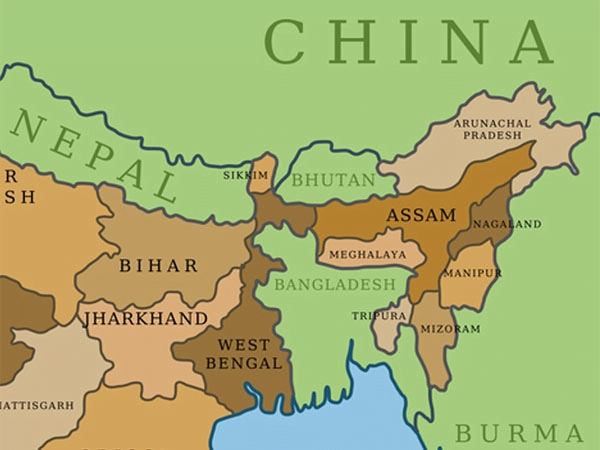
Any exploitation of Sentinel Island will wipe out tribals: AnSI
Part of: GS Prelims and GS-II – Policies and Interventions & GS-III – Environment
In news
- Anthropological Survey of India (AnSI) policy document warns of threat to endangered group from commercial activity.
Key takeaways
- According to ANSI, any exploitation of the North Sentinel Island of the Andamans for commercial and strategic gain would be dangerous for its occupants – the Sentinelese.
- It also said that the Right of the people to the island is non-negotiable, unassailable and uninfringeable.
- The prime duty of the state is to protect these rights as eternal and sacrosanct.
- Their island should not be eyed for any commercial or strategic gain.
- The document also calls for building a knowledge bank on the Sentinelese.
- Since ‘on-the-spot study’ is not possible for the tribal community, anthropologists suggest the ‘study of a culture from distance’.
Important value additions
Sentinelese
- It is the most secluded, particularly vulnerable tribal group (PVTG) who reside in complete isolation on the Andamans.
- It has a population of about 50 to 100 on the North Sentinel Island.
- They are not only among the most isolated of nearly 70 PVTGs across the country, but also among the five in the Andaman and Nicobar Islands which include Great Andamanese, Onge, Jarawa, and Shompens.
Do you know?
- Though both Sentinelese and Great Andamanese are classified as PVTG, the tribes live in two completely different contact situation.
- While in the case of the Sentinelese their contact to the outside world is almost nil, the Great Andamanese had decades of exposure to the world outside their Island.
(Mains Focus)
SOCIETY/ EDUCATION/ GOVERNANCE
Topic: General Studies 1,2:
- Social Empowerment
- Government policies and interventions for development in various sectors and issues arising out of their design and implementation.
Teacher vacancies at IITs and reservation
Background of the issue
- Additional Seats due to reservation: The Indian Institutes of Technology (IITs) have a large number of faculty vacancies, as the student intake capacity was raised by over 50% during 2008-10 after reservation for Other Backward Classes students was introduced. Recently reservation for Economically Weaker Sections (EWS) has been added.
- Expansion of IITs in recent decade: Also, more IITs were opened during 2008-17, currently, there are 23 IITs.
- Inadequate Teachers: Since the ratio of students to teachers has come under strain, and the high bar for entry of teachers, starting with a doctoral degree, has shrunk the pool of eligible aspirants from reserved categories
- Committee Formation: In this background, the Education Ministry formed a committee headed by the Director of IIT Delhi, V. Ramgopal Rao to look at implementing the reservation system effectively.
Why is it difficult to find candidates in reserved categories?
- The Committee said in its report that the IITs, set up as institutions of national importance under a special law to contribute to national and even global development, had to pursue high quality teaching and research.
- Aspirants must therefore possess a PhD degree, as well as a superior academic record and “high research accomplishments” for teaching.
- About a decade ago, the student to faculty ratio was estimated at about 6:1, which facilitated closer monitoring and pursuit of projects that make IIT courses unique. This faculty ratio later fell to 12:1, and appears to be under further strain.
- The Education Ministry’s Committee has pointed out that the optimal is a ratio of 10:1, on the basis of which faculty numbers have been set.
- The reality is that not enough candidates belonging to the reserved categories are going into research in engineering and technology. Even among those who do, only a small group opt for a teaching career. This has sharply reduced the available pool from which the IITs can recruit teachers while adhering to reservation norms.
- The Committee was concerned that the absence of enough qualified faculty was coming in the way of the IITs improving their global ranking, although the academic system was capable of breaking into the top 50.
What remedy is the Committee offering (recommendations)?
- Student admissions and teachers’ appointments are covered by the Central Educational Institutions (Reservation in Admission) Act, 2006, and the CEI (Reservation in Teachers’ Cadre) Act, 2019. Beneficiaries belong to the Scheduled Castes, Scheduled Tribes, OBCs and EWS
- The Ministry Committee, met twice in the current year, and came up with two options and ans action point to increase the talent pool.
- Exemption by including in 2019 law: According to the first, government could include the IITs in the schedule to the 2019 law on teachers’ recruitment, which would exempt these institutes from reservation, just as it does other institutions of excellence such as the Homi Bhabha National Institute, TIFR, Space Physics Laboratory and others.
- De-reservation of positions if no suitable candidates are found in that year: As a second option, the panel suggested that faculty at the level of Assistant Professor Grade I and II be given reservation, including for EWS, and the vacancies considered for the institution as a whole, and not for each department. Where suitable candidates from the reserved category are unavailable, the posts should be de-reserved in the next year, with approval from the Board of Governors. Also, Associate Professor and Professor posts should be exempted from reservation.
- Government-sponsored preparatory programme to increase Pool: To provide for a talent pool from among the reserved sections, the Ramgopal Rao panel has suggested the launch of two-year research assistantships fully funded by the Centre, with an option for the candidates to take up PhD studies and acquire qualifications that meet the rigorous standards of the IITs
- The recommendations have evoked a strong reaction, as they are seen as negating the objective of affirmative action through reservation.
What is the government’s position?
- The report of the Committee, which was obtained under the Right to Information Act by an interested citizen, is “under examination” by the government, according to the Ministry of Education.
- Although it aims at addressing a critical gap, the recommendation to do away with reservation is at odds with the stated position of the Central government.
- In November last year, the Education Ministry put out a notification pointing out that central educational institutions (CEIs), which would include IITs and IIMs, should ensure that faculty positions, including senior posts, fully met the norms of reservation.
- The Ministry now has a recommendation favouring no reservation, and a reiteration of the idea of treating an IIT as a single unit for the purpose of drawing up a roster of reserved posts, rather than go by individual departments.
- The single unit idea is also the intent of the 2019 law, which was first issued as an ordinance, to remove legal difficulties arising from court judgments that did not accept the logic.
- An analysis by PRS Legislative Research estimates that the composite method of calculation typically leads to a small rise in reserved posts, over the individual departments method. On the other hand, it also means that the reserved posts could be heavily represented in one department but there may be none in another.
Way Forward
- Diversity achieved through affirmative action such as compensatory discrimination in favour of some classes of citizens corrects historical distortions. For it to be fully realised, however, the concomitant is massive investments in the education system at all levels, which can raise the capability of students
- Governments must aim for progressive redistribution, for which policy should actively expand equal opportunity, starting with a strong, liberal public school system. This will strengthen diversity, and lay the foundation for the kind of scholarship that institutions of excellence need.
(TEST YOUR KNOWLEDGE)
Model questions: (You can now post your answers in comment section)
Note:
- Correct answers of today’s questions will be provided in next day’s DNA section. Kindly refer to it and update your answers.
- Comments Up-voted by IASbaba are also the “correct answers”.
Q.1 Sentinelese are native tribe of which of the following?
- Andaman and Nicobar Islands
- Lakshadweep
- Western Ghats
- Chhattisgarh
Q.2 Which of the following state of India does not border Bangladesh?
- Bihar
- Assam
- Tripua
- West Bengal
Q.3 Recently, the Union Defence minister recently handed over three indigenously developed Defence Research and Development Organisation (DRDO) systems to Army, Navy and Air Force. Consider the following regarding the same:
- BOSS is An all-weather electronic surveillance system.
- The IMSAS is high performance intelligent software system providing Global Maritime Situational Picture
Which of the above is/are correct?
- 1 only
- 2 only
- Both 1 and 2
- Neither 1 nor 2
Q.4 Human Freedom Index 2020 was recently released. Consider the following statements:
- India’s rank has significantly improved from last year.
- The world has seen a notable decline in personal freedom since 2008.
Which of the above is/are correct?
- 1 only
- 2 only
- Both 1 and 2
- Neither 1 nor 2
ANSWERS FOR 19th December 2020 TEST YOUR KNOWLEDGE (TYK)
| 1 | C |
| 2 | C |
| 3 | B |
Must Read
About inequitable labour-capital relation:
About laying foundations for faster growth:
About need for WTO reforms:




